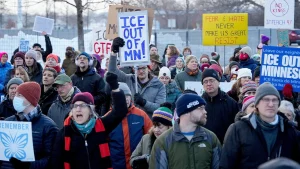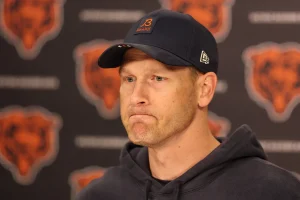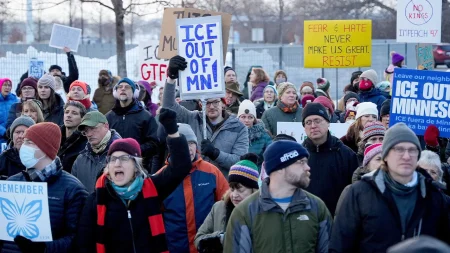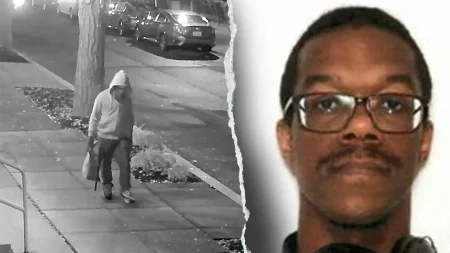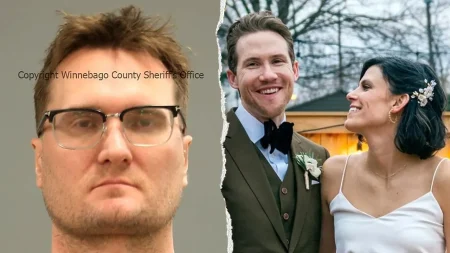Trump Signals Openness to Dialogue with Maduro Amid Growing U.S. Military Presence in the Caribbean
In a significant shift in diplomatic posture, President Trump has expressed willingness to engage in talks with Venezuelan President Nicolás Maduro, while simultaneously emphasizing that the United States has an obligation to “take care of Venezuela.” This dual approach comes at a time when the U.S. is bolstering its military capabilities in the Caribbean region, suggesting a complex strategy that balances potential diplomatic engagement with continued military readiness. The president’s comments mark a nuanced position on Venezuela, which has been experiencing political turmoil and humanitarian crisis under Maduro’s leadership, with millions of Venezuelans fleeing the country amid economic collapse and political repression.
The president’s openness to dialogue represents a potential softening of the administration’s previously hardline stance against the Maduro regime, which the United States and numerous other countries have refused to recognize following disputed elections. Despite this diplomatic opening, Trump’s assertion that America must “take care of Venezuela” indicates that the administration remains deeply concerned about the situation in the South American nation and sees it as a matter of regional security and humanitarian importance. This language suggests that while diplomatic channels may be explored, the U.S. continues to view Venezuela’s stability as integral to American interests in the Western Hemisphere, particularly as the crisis has led to regional instability and mass migration affecting neighboring countries.
Meanwhile, the increasing American military presence in the Caribbean raises questions about the administration’s ultimate intentions toward Venezuela. The buildup could be interpreted as leverage in potential negotiations, a deterrent against further deterioration of the situation, or preparation for more direct intervention should diplomatic efforts fail. This military positioning comes after previous U.S. sanctions on Venezuela’s oil industry and government officials, as well as strong support for opposition leader Juan Guaidó, whom many countries have recognized as Venezuela’s legitimate interim president. The contrast between extending an olive branch while simultaneously flexing military muscle creates an atmosphere of strategic ambiguity that may be designed to increase pressure on Maduro’s government.
The humanitarian crisis in Venezuela adds urgency to any U.S. policy decisions, with widespread food shortages, lack of medical supplies, and collapse of basic services affecting millions of citizens. Trump’s comments suggest an awareness of this humanitarian dimension, potentially signaling that addressing the suffering of the Venezuelan people remains a priority regardless of diplomatic or military approaches. The willingness to engage with Maduro could indicate a recognition that previous strategies have not yielded the desired outcomes for the Venezuelan people, whose daily struggles continue despite years of international pressure on the regime. However, critics may view talks with Maduro as legitimizing a government the U.S. has previously condemned as illegitimate and responsible for human rights abuses.
For Venezuela’s neighbors and the broader international community, Trump’s dual-track approach creates both opportunities and uncertainties. Countries that have absorbed large numbers of Venezuelan refugees, particularly Colombia, Brazil, and various Caribbean nations, may welcome any strategy that could lead to stability and eventual return of displaced populations. Yet these same countries may harbor concerns about increased militarization in the region or about any negotiations that might strengthen Maduro’s position without guaranteeing democratic reforms or humanitarian relief. The international community, including the European Union and the Lima Group of Latin American nations, has generally supported U.S. pressure on Maduro but may view military buildup with caution.
As the situation continues to evolve, the effectiveness of this apparent shift in U.S. strategy remains to be seen. The president’s willingness to talk with Maduro while simultaneously expanding military capabilities in the region creates a complex diplomatic and strategic environment with multiple possible outcomes. What remains clear is that Venezuela’s crisis continues to be a significant focus of U.S. foreign policy in the Western Hemisphere, with implications for regional stability, humanitarian concerns, and American influence in Latin America. Whether this new approach will help resolve Venezuela’s deep-rooted problems or further complicate an already complex situation depends on how these diplomatic overtures and military posturing ultimately translate into concrete policy actions in the coming months.
